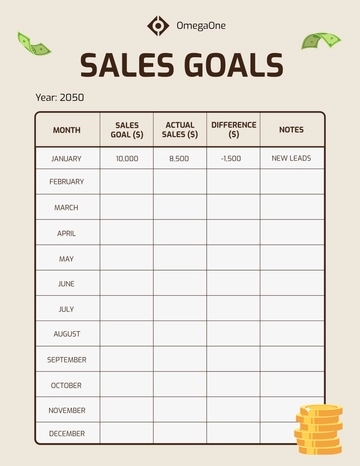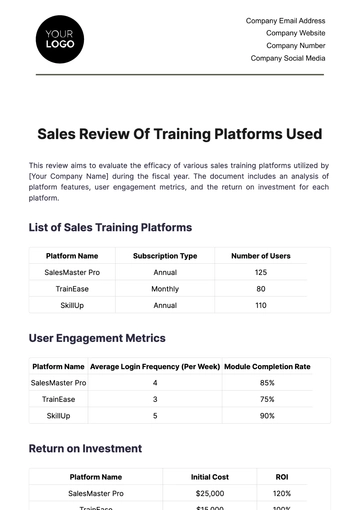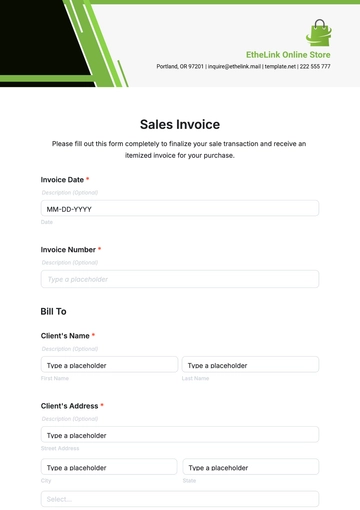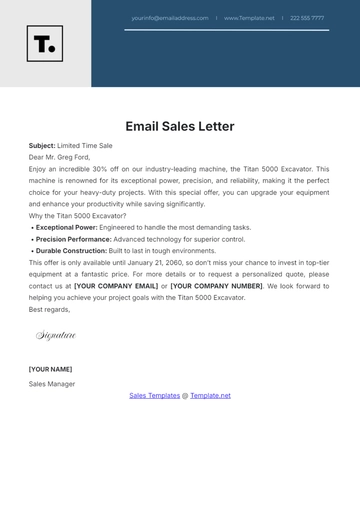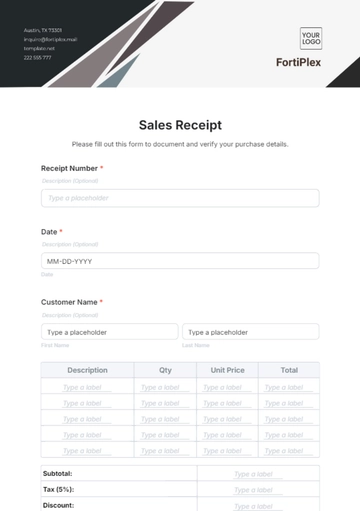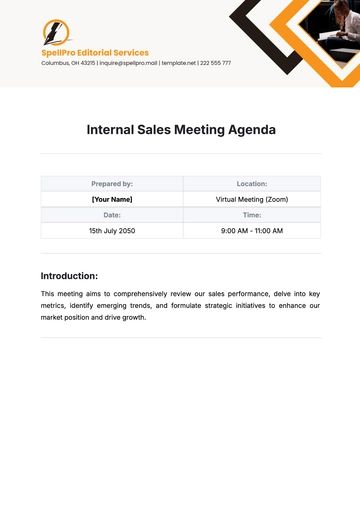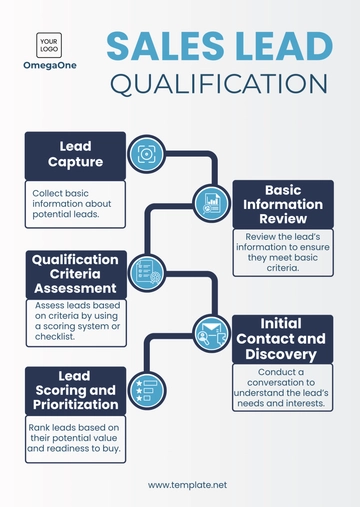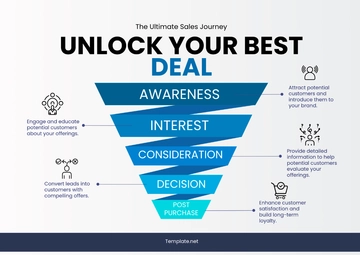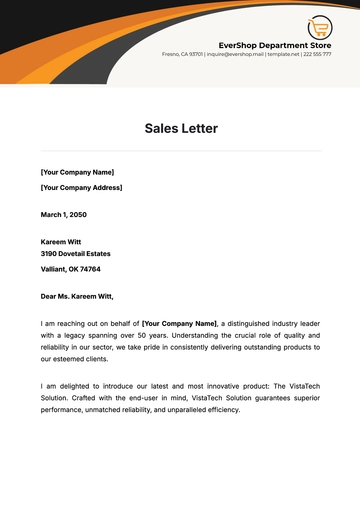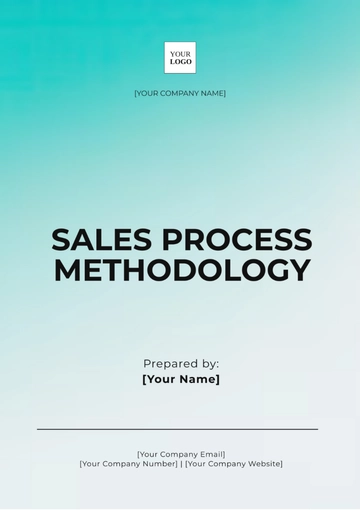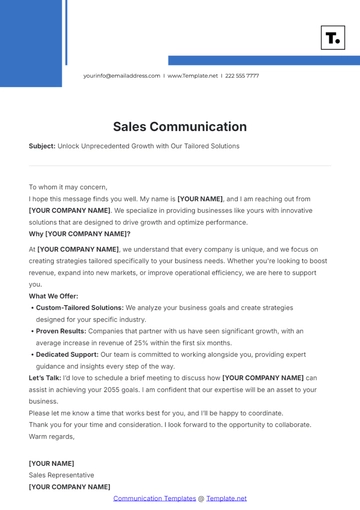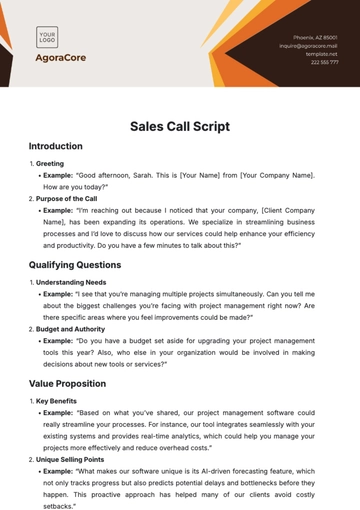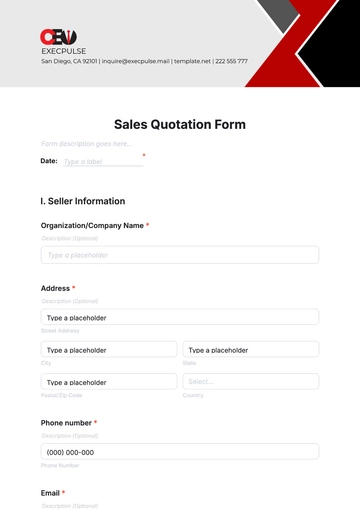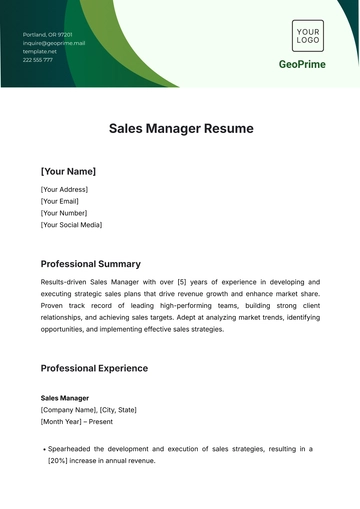Free Market Study on Sales Onboarding Needs

Introduction
Sales onboarding is a critical component of a successful sales team. It is the process of integrating new sales representatives into a business and equipping them with the necessary tools, knowledge, and skills to become effective in their roles.
For [Your Company Name], a growing technology solutions company, sales onboarding is of paramount importance. This market study will delve into the sales onboarding needs for [Your Company Name] , exploring the specific challenges they face, the best practices in the industry, and providing recommendations for an effective onboarding strategy.
Current Sales Onboarding System
[Your Company Name] is a dynamic and innovative company in the technology solutions sector, with a strong focus on software development and IT consulting. The company is on an upward trajectory, expanding its product and service offerings, and seeking to expand its sales team to meet growing demands.
Sales Onboarding Challenges
[Your Company Name] faces several challenges in its sales onboarding process:
Complex Product Offerings: [Your Company Name] offers a wide range of tech products and services. New sales representatives often struggle to grasp the intricacies of these offerings.
Rapid Technological Advancements: The tech industry evolves quickly. Sales reps must stay updated on the latest developments, which can be overwhelming.
High Competition: The tech solutions market is highly competitive, with many players vying for clients. Sales reps need to stand out and be well-prepared to win deals.
Diverse Clientele: [Your Company Name] serves clients from various industries. Sales reps need a nuanced understanding of different clients' needs.
Time-Consuming Training: The onboarding process is time-consuming, which can hinder the quick deployment of new sales reps.
Remote Work: The COVID-19 pandemic has made remote work the norm, requiring new onboarding practices and tools.
Best Practices in Sales Onboarding
Sales onboarding is a critical process that ensures new hires in the sales department are equipped with the necessary knowledge, skills, and tools to perform effectively. For [Your Company Name], implementing best practices in sales onboarding is pivotal to nurturing a high-performing sales team and achieving strategic business objectives.
Structured Onboarding Timeline
A structured onboarding timeline ensures that new sales representatives are methodically introduced to their roles, responsibilities, and the company culture. The timeline should span from the pre-onboarding phase through to the first 90 days of employment, with specific milestones set for knowledge acquisition, skill development, and performance evaluation.
Time Frame | Milestones | Objectives |
|---|---|---|
Pre-onboarding | Welcome package sent and access to learning materials. | Familiarize with company culture and begin product knowledge acquisition. |
Comprehensive Training Program
The training program should cover product knowledge, sales techniques, customer relationship management, and internal tools and processes. Interactive learning methods such as role-playing, simulations, and mentorship should be utilized to enhance understanding and retention.
Component | Description | Evaluation Method |
|---|---|---|
Product Knowledge | In-depth information about products or services offered by [Your Company Name]. | Quizzes and presentations. |
Continuous Support and Development
Sales onboarding does not end after the initial training period. Continuous learning opportunities, regular feedback sessions, and career development plans are crucial for ongoing skill enhancement and motivation.
Period | Support Activities | Goals |
|---|---|---|
90 Days to 1 Year | Monthly performance reviews and advanced training modules. | Reinforce learning and identify areas for improvement. |
Metrics for Success
To measure the effectiveness of the sales onboarding process, [Your Company Name] should establish clear metrics related to performance, retention, and engagement.
Metric | Description | Target |
|---|---|---|
Time to First Sale | Average duration from hire date to first sale. | < 60 days |
Implementing these best practices in sales onboarding for [Your Company Name] will significantly contribute to the development of a knowledgeable, skilled, and motivated sales force, ultimately driving the company's success. Monitoring and regularly updating the onboarding process based on feedback and evolving business needs will ensure its ongoing effectiveness and relevance.
Recommendations
The study has analyzed the current sales onboarding practices at [Your Company Name], identifying areas of strength and opportunities for improvement. Based on the findings, the following recommendations are proposed to enhance the effectiveness of the sales onboarding process, thereby improving sales performance and employee retention rates.
Customized Onboarding Program
[Your Company Name] should develop a customized onboarding program that addresses the unique challenges in their industry. This program should focus on product knowledge, industry trends, and effective sales techniques tailored to their tech solutions.
Continuous Learning Portal
Establish a continuous learning portal that provides sales representatives with easy access to updated product information and industry trends. Consider partnering with tech training providers or developing in-house resources.
Mentorship Program
Implement a mentorship program where experienced sales reps guide newcomers. This can help new hires acclimate faster and learn from seasoned professionals.
Technology Integration
Leverage sales technology like CRM systems and collaboration tools to streamline processes, improve communication, and enhance tracking of onboarding progress.
Gamified Learning Modules
For [Your Company Name] a company operating in the tech solutions sector, gamified learning modules can be particularly effective in making the onboarding process more interactive and enjoyable. [Your Company Name] can implement gamified learning modules in the following ways:
Customized Gamification Platform: Develop a customized gamification platform or work with a third-party provider to create a tailored solution that aligns with [Your Company Name]' unique needs.
Integration with Learning Management System (LMS): Integrate gamified modules with the company's LMS to ensure seamless onboarding and tracking of progress.
Reward System: Establish a reward system that recognizes top performers with certificates, badges, or other incentives, fostering a sense of achievement.
Conclusion
Sales onboarding is a critical component of a successful sales team, and for [Your Company Name], it's an opportunity to equip new sales representatives with the knowledge and skills needed to excel in a highly competitive tech solutions market. By implementing best practices such as structured training, continuous learning, mentorship, technology integration, gamification, and remote onboarding, [Your Company Name] can create a well-rounded onboarding program that addresses their unique challenges and helps their sales team thrive in an ever-evolving industry.
- 100% Customizable, free editor
- Access 1 Million+ Templates, photo’s & graphics
- Download or share as a template
- Click and replace photos, graphics, text, backgrounds
- Resize, crop, AI write & more
- Access advanced editor
Uncover the essentials of sales onboarding with Template.net's Market Study on Sales Onboarding Needs Template. This resource is designed to be fully editable and customizable, allowing businesses to align their onboarding processes with market demands. Utilize our Ai Editor Tool to effortlessly adapt the template, ensuring your sales onboarding strategy is informed, effective, and competitive.





